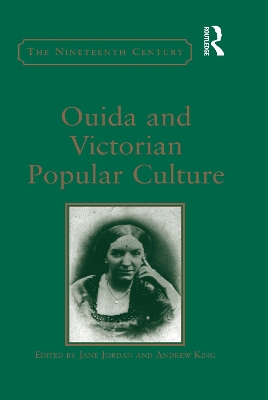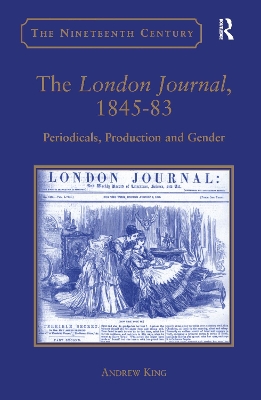Nineteenth Century
3 total works
'Ouida,' the pseudonym of Louise Ramé (1839-1908), was one of the most productive, widely-circulated and adapted of Victorian popular novelists, with a readership that ranged from Vernon Lee, Oscar Wilde and Ruskin to the nameless newspaper readers and subscribers to lending libraries. Examining the range and variety of Ouida’s literary output, which includes journalism as well as fiction, reveals her to be both a literary seismometer, sensitive to the enormous shifts in taste and publication practices of the second half of the nineteenth century, and a fierce protector of her independent vision. This collection offers a radically new view of Ouida, helping us thereby to rethink our perceptions of popular women writers in general, theatrical adaptation of their fiction, and their engagements with imperialism, nationalism and cosmopolitanism. The volume's usefulness to scholars is enhanced by new bibliographies of Ouida's fiction and journalism as well as of British stage adaptations of her work.
Ouida was the one of the best known and best-selling authors of the nineteenth century. Informed by unknown or neglected sources in English and Italian, Andrew King’s biography interlaces the story of Ouida’s life with new readings of her works and analyses of Victorian popular culture, the transnational culture industries, and our investment in Ouida as either a disparaged figure of ridicule or as a precursor of an alternative, less oppressive regime.
This book is the first full-length study of one of the most widely read publications of nineteenth-century Britain, the London Journal, over a period when mass-market reading in a modern sense was born. Treating the magazine as a case study, the book maps the Victorian mass-market periodical in general and provides both new bibliographical and theoretical knowledge of this area. Andrew King argues the necessity for an interdisciplinary vision that recognises that periodicals are commodities that occupy specific but constantly unstable places in a dynamic cultural field. He elaborates the sociological work of Pierre Bourdieu to suggest a model of cultural 'zones' where complex issues of power are negotiated through both conscious and unconscious strategies of legitimation and assumption by consumers and producers. He also critically engages with cultural theory as well as traditional scholarship in history, art history, and literature, combining a political economic approach to the commodity with an aesthetic appreciation of the commodity as fetish. Previous commentators have coded the mass market as somehow always 'feminine', and King offers a genealogy of how such a gender identity came about. Fundamentally, however, the author relies on new and extensive primary research to ground the changing ways in which the reading public became consumers of literary commodities on a scale never before seen. Finally, King recontextualizes within the Victorian mass market three key novels of the time - Walter Scott's Ivanhoe (serialised in the London Journal 1859-60), Mary Braddon's Lady Audley's Secret (1863), and a previously unknown version of Émile Zola's The Ladies' Paradise (1883) - and in so doing he lends them radically new and unexpected meanings.


